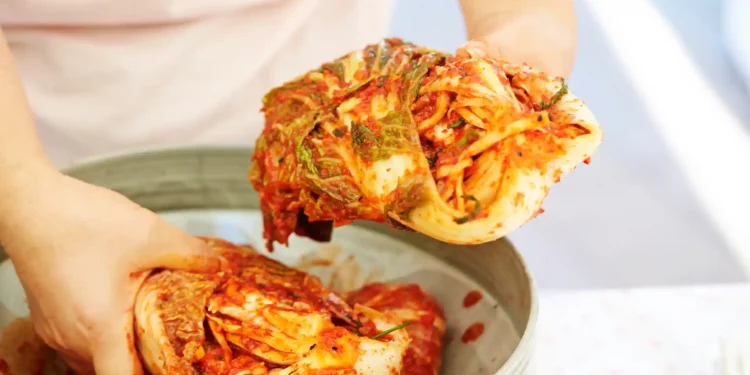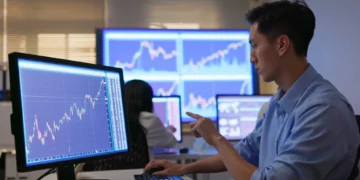South Korea’s kimchi business is already facing problems with low-priced imports from China, dished out in restaurants, and climate change is making it worse.
The famous kimchi everyone loves in South Korea has fallen victim to climate change. Scientists, farmers, and manufacturers are stating that the quality and quantity of the napa cabbage used to make this famous dish are falling victim to rising temperatures.
These cabbages grow in cooler climates and are planted in hilly regions where the temperature, even during the summer, rarely rises above 25 degrees Celsius (77 degrees Fahrenheit).
According to studies, South Korea cannot grow napa cabbage anymore due to the increasing heat. The crops are under threat due to the warmer weather brought on by climate change.
Plant pathologist and virologist Lee Young-gyu hopes these predictions don’t come true. Cabbage thrives in cool climates and can survive a relatively small range of temperatures. The ideal temperature for napa cabbage is 18 to 21 degrees Celsius.
Farmers and kimchi manufacturers, both commercial and domestic, are already feeling the shift.
Even though spicy and fermented kimchi can be made from radish, green onion, and cucumber, the most widely used vegetable is cabbage.
If the high temperature continues in South Korea, people might have to give up their beloved cabbage kimchi during the summer. The high temperature makes the cabbage go bad, and the root becomes tender.
According to data from the government statistics agency, the area used to grow cabbage last year was 3,995 hectares, which was half of what it was 20 years ago, which was 8,796 hectares.
The Rural Development Administration states that due to climate change, in the next 25 years, the area used for farming cabbage will be reduced significantly to just 44 hectares. By 2090, there will be no more highland cabbage growing.
The cause of the shortage of crops, according to researchers, is unexpected heavy rains, pests, and rising temperatures, which are harder to control during long and warm summer days.
Farmers have also found it highly difficult to manage the fungal infection, which particularly destroys the plant and manifests itself right before the harvest.
South Korea’s business is already facing problems with low-priced imports from China, dished out in restaurants, and climate change is making it worse.
According to the data from customs released on Monday, the kimchi imports at the end of July increased 6.9% to $98.5 million this year, all of which came from China and represented the biggest import ever.
The government depended on huge climate-controlled storage facilities to prevent price increases and shortages. Additionally, the researchers are working hard to develop crop varieties that can withstand fluctuations in rainfall and infections and grow in warmer areas.
However, farmers like Kim, who has worked all his life in a Gangneung region of cabbage fields, feared that these varieties would be more expensive to grow and that the taste would also be different.
He said that when he heard the reports, he was shocked and sad that it would be difficult to grow these cabbages in Korea at some point. It is difficult to leave Kimchi off the table, and he expressed his worry, asking what can be done if it happens.
Other than climate change, the farmers of South Korea are also facing issues with pests and unexpected heavy rains. While the government is taking measures by taking advantage of climate control facilities and importing cabbages from China, these are only temporary solutions.
There needs to be urgent research done to develop heat-resistant cabbage varieties, but it is unsure whether they would meet the high standards set by kimchi lovers.

















